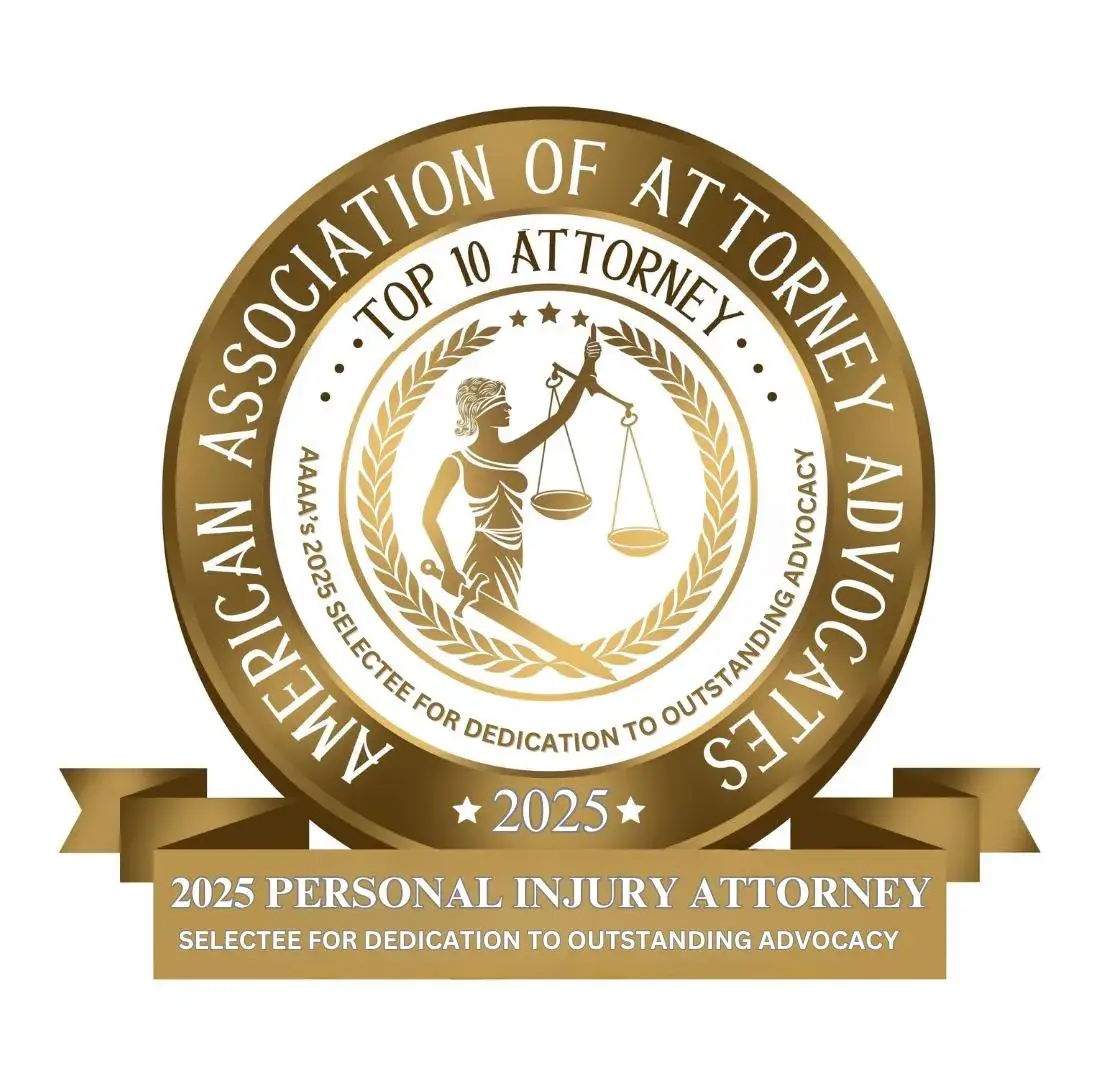
How Do Insurance Companies Negotiate Settlements?
When you’ve been injured in an accident, the physical pain and emotional strain can be stressful. On top of that, dealing with insurance companies can be confusing and intimidating. You might wonder, “How do they handle my claim?” or “Am I being treated fairly?”
Knowing how insurance companies negotiate settlements is key to protecting yourself and getting the compensation you deserve. Let’s break down the process so you can feel more confident as you move forward.
How do insurance companies calculate and negotiate personal injury settlements?
- They evaluate your claim: Adjusters review medical bills, lost income, property damage, and policy limits to estimate your case’s value.
- They try to protect their bottom line: Tactics include quick lowball offers, denying fault, downplaying injuries, and using delays to pressure you.
- They may use your words against you: Recorded statements and even casual comments can be twisted to reduce your payout.
- They expect you to settle fast: But quick settlements often ignore long-term impacts like ongoing treatment or lost future wages.
- Documentation is your strongest tool: Medical records, accident reports, receipts, photos, and a personal injury journal help support your claim.
- You don’t have to handle it alone: A personal injury lawyer can help you understand your claim’s full value and negotiate for what you’re truly owed.
How Insurance Companies Evaluate Claims
When you file a personal injury claim with an insurance company, their goal is to determine the value of your case. This involves analyzing what the accident has cost you, not just financially, but also physically and emotionally. To do this, they consider several factors, including:
- Medical Expenses
The insurance company will closely review your medical records and bills. This includes immediate costs like hospital visits, surgeries, and medications, as well as ongoing treatments like physical therapy. If your injuries require long-term care, they may try to estimate future medical expenses too.
- Lost Income and Earning Capacity
If you’ve had to miss work because of your injuries, the insurer will consider how much income you’ve lost. Additionally, if your ability to work has been permanently affected, they’ll assess the long-term impact on your earning potential.
- Property Damage
For accidents involving vehicles, the insurer will look at the cost of repairing or replacing your car, motorcycle, or other damaged property.
- Non-Economic Damages
Pain and suffering, emotional distress, and loss of enjoyment of life are more subjective aspects of your claim. These non-economic damages can be harder to calculate, and insurance companies often undervalue them.
- Liability
The insurance adjuster will review the facts of the case to determine who is at fault. If there’s any uncertainty or shared responsibility, they may attempt to reduce your compensation.
- Policy Limits
Your settlement offer is also limited by the at-fault party’s insurance policy. If their coverage has a cap, the insurer won’t offer more than the policy allows, even if your damages exceed that amount.
Once they’ve evaluated these factors, the insurance adjuster assigns a value to your claim, which serves as the baseline for settlement negotiations.
Common Insurance Company Tactics
Insurance companies are businesses, and their priority is protecting their bottom line. To do this, adjusters use tactics designed to minimize payouts. Understanding these strategies can help you stay vigilant and protect your rights:
- Quick Settlement Offers
After your accident, you might receive a settlement offer right away. While this might seem like a sign of efficiency, it’s often a tactic to close the case before you fully understand the extent of your injuries or damages. Early offers are usually much lower than what you deserve.
- Disputing Liability
Insurance companies sometimes argue that you were partially or fully at fault for the accident. By doing this, they aim to reduce or deny your compensation. For example, they might claim you were speeding or not paying attention at the time of the crash.
- Downplaying Injuries
Insurers might question the severity of your injuries or suggest they’re unrelated to the accident. They may even ask for previous medical records to find pre-existing conditions they can use to justify a lower offer.
- Delay Tactics
Insurance companies may deliberately drag out the process to pressure you into accepting less. They know that medical bills and lost wages put financial stress on victims, making it harder to wait for a fair settlement.
- Low Initial Offers
Adjusters often start with a “lowball” offer, hoping you’ll accept out of frustration or financial need. They might frame it as the best deal available, even though there’s room to negotiate.
- Using Recorded Statements Against You
After an accident, the adjuster may ask for a recorded statement. While this might seem harmless, their goal is to catch inconsistencies or phrases they can use to challenge your credibility or diminish your claim.
- Claiming Negotiations Are Final
Some insurance companies may try to convince you that their offer is non-negotiable. This is rarely true, as most settlements involve some level of back-and-forth negotiation.
These tactics can make the settlement process feel more challenging than it should be, but knowing their playbook helps you stay one step ahead.
What You Should Be Aware Of
If you’re negotiating a settlement with an insurance company, knowledge is your best ally. Keep these tips in mind to protect yourself throughout the process:
- Seek Immediate Medical Attention
After an accident, always prioritize your health. Visit a doctor promptly, even if you feel okay. Some injuries may not show symptoms right away, and having medical documentation establishes a clear link between the accident and your injuries.
- Be Wary of Signing Releases
If the insurance company tries to get you to sign a settlement release, make sure you read it carefully. Some releases waive your right to pursue additional compensation, even if new damages or medical issues arise later.
- Consider Professional Guidance
Insurance negotiations are intricate, and many people find it helpful to work with someone who understands how adjusters operate. Whether it’s an attorney or another trusted advocate, having an experienced ally can ease the burden and help ensure a fair outcome.
- Understand the Statute of Limitations
Personal injury claims have a deadline, known as the statute of limitations. If you wait too long to file a claim, you could lose your right to seek compensation. Make sure you know the timeline that applies to your case.
- You Have More Power Than You Think
While insurance companies might seem intimidating, they want to avoid the expense of a trial. This gives you leverage in negotiations, especially if you have strong evidence to support your claim.
By staying informed and vigilant, you can approach the settlement process with greater confidence and focus on what really matters—your recovery.
Protecting Your Rights During Negotiations
Understanding how insurance companies approach settlements can help level the playing field, but it’s just as important to know how to protect your own rights during the process. Insurance adjusters are skilled negotiators who aim to protect the interests of their company, which often means minimizing payouts. However, there are concrete steps you can take to safeguard your claim and ensure your voice is heard.
Never Rush to Settle
After an accident, it’s natural to want to put the ordeal behind you as quickly as possible. Insurance companies know this and may offer you a settlement soon after the accident. While a quick payout may sound tempting, initial offers are often much lower than you’re entitled to.
Claims adjusters may downplay your injuries or the long-term consequences of the accident to justify a lowball offer. They might say something like, “This is the best we can do,” hoping you’ll accept without hesitation. But in most cases, the first offer is just the starting point of negotiations. By taking the time to fully assess the impact of your injuries and damages, you can avoid accepting an offer that won’t cover your expenses or losses.
Understand the Value of Your Claim
One of the most critical steps in protecting your rights is understanding the true value of your claim. This involves accounting for more than just immediate medical bills or property damage. Think about the broader picture:
- Medical Costs: Include past and future expenses, such as surgeries, physical therapy, and medications.
- Lost Income: If your injuries prevent you from working, calculate the income you’ve lost and consider the impact on your future earning potential.
- Pain and Suffering: Compensation should also reflect the emotional and physical toll of your injuries.
- Impact on Daily Life: Consider how the accident has affected your ability to engage in hobbies, maintain relationships, or perform everyday tasks.
By carefully evaluating all aspects of your claim, you’ll have a clearer understanding of what a fair settlement should look like.
Keep Detailed Documentation
Documentation is one of the most powerful tools you have during the claims process. Having a complete record of your injuries, expenses, and communication with the insurance company can strengthen your case and support your demands.
- Medical Records: Your medical documentation is key to proving the severity of your injuries. Keep copies of doctor’s reports, imaging results, treatment plans, and receipts for prescriptions or medical devices.
- Photographic Evidence: Pictures of your injuries, the accident scene, and property damage can provide clear visual proof of what happened.
- Accident Reports: Obtain copies of any official reports, such as police or workplace incident reports, as these can offer impartial documentation of the event.
- Receipts and Bills: From medical costs to transportation expenses related to treatment, save every record of money you’ve spent due to the accident.
- Journal Entries: Keeping a personal record of how your injuries have impacted your life can help illustrate emotional and physical suffering. Write about your pain levels, struggles in daily tasks, and changes to your lifestyle.
The more evidence you provide, the harder it becomes for an insurance company to dispute your claim.
Be Cautious About What You Say
When discussing your case with an insurance adjuster, it’s wise to choose your words carefully. Anything you say can potentially be used against you to reduce your settlement. For example, even a polite statement like “I’m feeling better” might be interpreted as an admission that your injuries have healed.
Here are some tips for effective communication:
- Avoid accepting fault or blame for the accident.
- Stick to the facts when describing the incident.
- Don’t provide extensive details about your injuries until you’ve consulted with a medical professional.
- Decline requests for recorded statements unless absolutely necessary.
Simply put, less is more. Leave explanations and negotiations to the professionals if you’ve chosen to seek legal representation.
When Should You Call for Help?
While many people attempt to handle insurance claims on their own, there are situations where having professional guidance can make all the difference. The claims process can quickly become overwhelming, particularly when injuries are severe or liability is disputed.
Here are some signs it may be time to seek legal help:
- You’re Faced with a Lowball Offer: If the settlement offered doesn’t come close to covering your expenses, it’s worth consulting with someone who understands the full value of your claim.
- The Insurer Denies Your Claim: Insurance companies sometimes deny valid claims. If this happens, a legal professional can help advocate on your behalf.
- Liability Is Disputed: When there’s disagreement over who’s at fault, a lawyer can gather and present evidence to strengthen your case.
- You’re Dealing with Complex Injuries: Cases involving life-altering injuries or significant medical care often result in higher settlements, but they also require adequate proof and skills to negotiate.
- The Process Is Stressing You Out: If navigating the claims process is affecting your well-being, having someone else take the lead can allow you to focus on recovery.
An experienced advocate who understands personal injury law can be essential during settlement negotiations. They’ll not only handle communications with the insurance company but also help ensure your claim is prepared and presented in the strongest way.
Why It’s Worth Seeking Justice
After an accident, the financial pressures and emotional toll can often make victims feel like they’re fighting an uphill battle. But fair compensation isn’t just about covering bills or lost wages. A just settlement helps rebuild what was lost—from financial stability to peace of mind.
No one should feel like they have to settle for less than what they deserve. When insurance companies prioritize profits over people, proper representation can ensure your story is told, your injuries are acknowledged, and your rights are protected.
At Maggiano, DiGirolamo & Lizzi, we understand the challenges of negotiating with insurance companies after an accident. With years of experience and a dedicated team, we fight to secure justice and compensation for our clients.
When life hands you an uphill battle, we’re here to stand beside you and fight for what you deserve. Reach out to us today at (201) 585-9111 or through our online form for a free consultation and get the support and guidance you need to move forward.



















